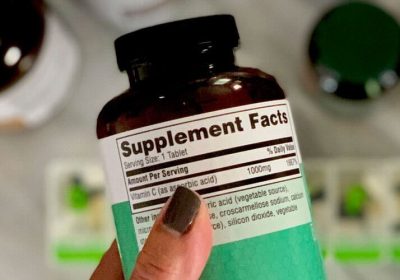A bill in Congress will be an important step to help turn the tide on the chronic disease epidemic. Action Alert!
THE TOPLINE
- The U.S. faces a scarcity of nutrition, with significant portions of the population, including SNAP recipients, being deficient in essential vitamins and minerals, contributing to widespread chronic diseases like obesity, diabetes, and heart disease.
- Proposed legislation by Congressman Matt Rosendale aims to empower states to ban the use of SNAP benefits for purchasing unhealthy foods high in sugar and fat, like soft drinks and desserts, to promote healthier eating habits.
- By encouraging better nutrition, the bill seeks to improve public health outcomes, reduce healthcare costs, and address the chronic disease epidemic, with an emphasis on the high economic costs associated with poor diets.
In today’s United States, scarcity of food is no longer the pressing issue it once was; instead, we face a scarcity of nutrition. Many Americans, both rich and poor, are not receiving the necessary nutrients from the standard American diet. The prevalence of obesity and other chronic diseases serves as a grim reminder of this nutritional deficiency crisis. Stark numbers underscore this problem: 93% of Americans are deficient in vitamin E, 56% in magnesium, 44% in vitamin A, and 31% in vitamin C.
To combat these alarming trends, Congressman Matt Rosendale (R-MT) recently introduced the Ensuring Health in SNAP Act of 2024. This bill proposes to empower states with the authority to ban the use of Supplemental Nutrition Assistance Program (SNAP) benefits for purchasing soft drinks, candy, ice cream, and prepared desserts such as cakes, pies, and cookies. This is a modest but important step in combatting the epidemic of chronic diseases that plagues this country. This initiative is not just about regulating food choices; it’s about promoting a healthier, more nutrient-rich diet for all Americans.
The American diet and chronic disease
The American diet is infamously known as one of the worst in the world. A recent report from Tufts University underscored how poor nutrition is a leading driver of death and disability in the United States, contributing to heart disease, stroke, type 2 diabetes, obesity, and other severe health conditions. A staggering statistic from the Tufts report indicates that poor diets cost society approximately $1.1 trillion annually due to healthcare expenses and lost productivity. Notably, nearly 60% of SNAP recipients are also on Medicaid, meaning that improving their diet could significantly reduce public health expenditures.

The bill is a response to previous attempts by states like New York, Minnesota, and Maine to implement similar reforms, which were blocked by the USDA.
Sugar’s role in the epidemic of chronic disease
The consumption of ultra-processed foods high in sugar and fat has been closely associated with a heightened risk of chronic illnesses. Overconsumption of sugar, for instance, leads to the conversion of excess sugar into fat, which can accumulate in vital organs like the heart, liver, and kidneys. This not only raises blood pressure but also weakens the immune system and slows metabolism, contributing to the obesity epidemic and related health issues.

Studies have repeatedly shown the dangers of excessive sugar intake. For example, sugar has been linked to type 2 diabetes, which in turn increases the risk of Alzheimer’s disease, suggesting that Alzheimer’s may be another form of diabetes. Furthermore, research has indicated that high sugar intake can impair cognitive functions, such as memory recall and learning ability, and is independently associated with heart disease.
We’ve noted in the past how the food industry has engineered us to crave sugar. Industry insiders all but admit that the responsibility for today’s obesity epidemic lies largely at their feet. Tremendous amounts of research and investment have gone into making foods not just tasty, but so irresistible that consumers cannot control their cravings. In fact, studies have found that rats prefer sugar to cocaine—even rats that are already addicted to cocaine.
A step towards better health
The Ensuring Health in SNAP Act of 2024 represents a significant step toward promoting better dietary habits. In a time when 1 in 2 U.S. adults has diabetes or prediabetes and 3 in 4 are overweight or obese, legislative measures like this are crucial for combating the chronic disease epidemic.
Action Alert! Writ to Congress in support of the Ensuring Health in SNAP Act of 2024. Please send your message immediately.
>>Feel free to republish – just follow our Alliance for Natural Health USA Re-publishing Guidelines.




HEALTH IN SNAP 2024 – I’m struggling with this one. We’re targeting one group of people to combat such an epidemic? These junk foods are available to EVERYONE and we all are guilty of spending our money for it, so shouldn’t we all have some accountability and not just the people that get SNAP assistance? What about the process that makes it so readily available- the companies that manufacture it, the entire system that makes sure the shelves are full of it? No accountability for any of them? Does this group represent the MAJORITY of people with chronic diseases and obesity? Shame on us!
I am a little surprised by your article on restricting SNAP-eligible food purchases. Your articles posted on ANH’s website generally advocate a libertarian approach to health and wellness, i.e., let each individual choose his or her own options for achieving health and wellness. Yet here you are supporting restrictions on what foods SNAP beneficiaries can buy with their EBT cards. Sure, the categories of food proposed for restriction are typically less healthy. The unspoken assumption is that SNAP recipients are not only poor but also lazy and stupid, that they need the wise and benevolent guidance of experts and other authorities who know what’s best for them. This top-down approach is very similar to what is going on with the WHO and Covid. ANH opposes the heavy-handed approach of the WHO, but seems ok with the heavy-handiness with respect to SNAP. Milton Friedman and other laissez-faire economists argue that it is better to give cash to poor and needy folk, letting them decide how best to spend it, than to subject them to a variety of government programs, each with its own narrow target of services, and which deprive these folk of their dignity.
Approval of these restrictions on SNAP is the first step down a slippery slope. Since both SNAP and Medicaid are federal programs administered by the states, they could share info. For example, Medicaid could decide not to pay for a member’s implanted arterial stent because that member has a history of using SNAP to buy too much fatty food.
ANH also has opposed recent proposals by the FDA to restrict further the amounts of sugar, fat, and sodium in processed foods and how those foods are labeled, yet you want to nitpick SNAP beneficiaries about their access to such foods. In this case, ANH may be overreaching.